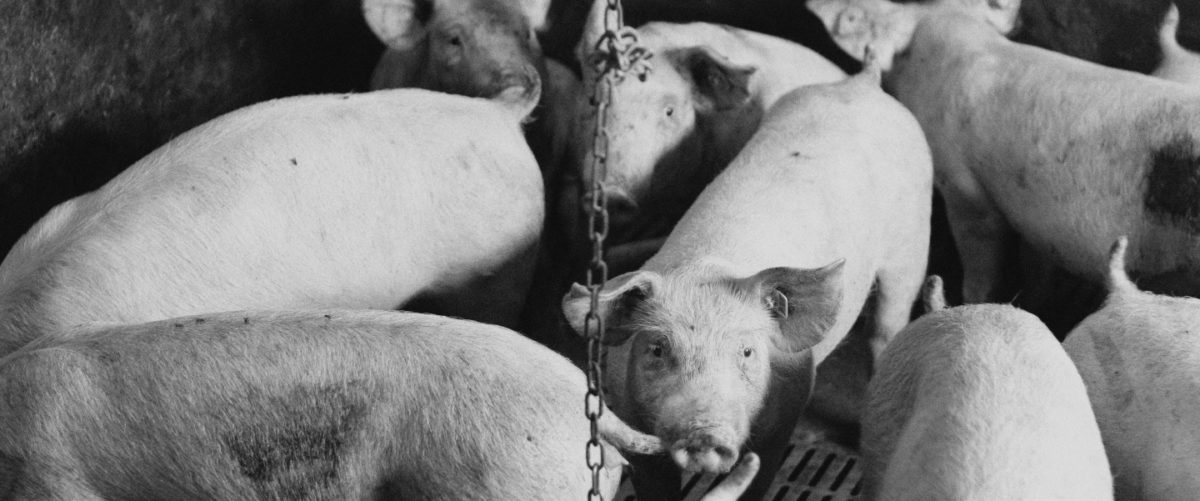Iowa’s Waged A War To Silence Big Ag Critics. We’re Trying To Stop Them In Court.
Published Sep 2, 2021

Iowa has criminalized free speech when it comes to revealing standard practices in big agriculture, through “Ag-Gag” laws. We’re calling foul and taking them to court, because someone has to.
Iowa legislators are determined to hide dirty factory farm practices from the public. Across the country, Big Ag has been pushing unconstitutional statutes known as “Ag-Gag” laws — anti-transparency laws designed to silence journalists, activists, and impacted community members who dare to expose food safety violations, animal abuse, and environmental degradation at factory farms. They do so by criminalizing essential free speech activity like undercover investigations.
Iowa enacted its first Ag-Gag law in 2012, and has since passed three more in response to court decisions striking down these laws for violating the First Amendment. Rather than protecting Iowans’ rights, Iowa’s industry-controlled legislators tweak their illegal approach in repeated attempts to skirt the Constitution. Which leads us to “Ag-Gag 4.0,” Iowa’s latest attempt to silence voices the factory farm industry doesn’t want the public to hear, in a way that legislators hope will survive legal challenge.
Ag-Gag 4.0 takes a slightly different approach than previous attempts by making camera usage or data collection while trespassing an “aggravated” misdemeanor; this carries stiffer fines and jail time than a simple trespass. Legislators have brought absurd claims about the risk of “industrial espionage” to justify the law — the latest in a string of absurd reasons for infringing on Iowans’ constitutional rights. But we know their real goal is shielding Big Ag from public scrutiny. Which is why Food & Water Watch has joined a lawsuit to strike down Ag-Gag 4.0, just as so many other similar laws have been struck down in Iowa and across the country.
We’re fighting this in court. Will you chip in to help power our work?
Unconstitutionally Infringing on Civil Liberties, Iowa Continues Pushing More Ag-Gag Laws
Given that the intent of Ag-Gag laws is to silence unwelcomed viewpoints protected by the First Amendment, it should come as no surprise that many Ag-Gag laws have been struck down or put on hold. The key provision of Iowa’s original 2012 Ag-Gag law, which criminalized false statements made by undercover investigators while seeking employment at factory farms, was just struck down by a court of appeals. Even more recently, another court of appeals struck down a core provision of Kansas’s Ag-Gag law. These losses follow in the footsteps of similar court decisions throwing out Ag-Gag laws in Idaho, Utah, North Carolina, and elsewhere. Despite the clear message from federal courts that Ag-Gag laws are unconstitutional, Iowa’s legislators have forged ahead undeterred.
Ag-Gag Laws Protect The Financial Interests Of Iowa’s Corrupt Legislators And Their Donors
If you are wondering why Iowa legislators would keep trying so hard to implement an Ag-Gag law that sticks, look no further than what comes to light whenever public interest advocates show what’s happening on factory farms. Undercover investigations consistently expose rampant food safety violations, environmental concerns, and disturbing animal abuse. So it’s no wonder the industry wants to put a stop to them!
And in Iowa, some legislators are the industry. One of the leading proponents of multiple Iowa Ag-Gag laws is state senator Ken Rozenboom. Senator Rozenboom owns multiple factory farms in Iowa, and has blocked proposals for a factory farm moratorium and stronger regulations of factory farm pollution. His factory farms were the subject of an undercover investigation showing appalling animal abuses — exactly the type of investigation his Ag-Gag laws seek to criminalize. This is a clear conflict of interest.
That’s why Food & Water Action, FWW’s sister organization, filed an ethics complaint against Senator Rozenboom in August 2020 for violating the Iowa Senate’s Code of Ethics by pushing for legislation clearly designed to protect his personal financial interests. Senator Rozenboom tried to appear disturbed and upset by the abuse and deplorable conditions documented at his factory farms and tried to blame lower level management, but he knows that what was uncovered was business as usual. Factory farming’s only hope is to keep the public in the dark as long as possible.
We Have a Right to Know How Our Food Is Produced
More than a century ago, Upton Sinclair’s The Jungle exposed the horrors of early 20th century meatpacking. That transparency led to a sea change in U.S. food production, ushering in food safety laws still on the books today. But factory farms still operate largely in the dark, and shedding light on how animals are raised, slaughtered, and processed into food remains of great importance today. The factory farm industry understands that its business as usual practices would be shocking and unacceptable to their customers and the public at large, if exposed to the light of day. So, rather than clean up their act, they have lobbied hard to punish those who would expose the truth. As the Iowa Pork Producers Association explained, Ag-Gag laws protect factory farms “from various people [who] have hidden agendas and things like that.”
But there is nothing hidden about our agenda. Food & Water Watch will continue fighting for transparency in Iowa and across the country. We will not rest so long as Iowa’s industry-bought legislators continue to abuse their power to silence dissent and keep factory farming in the shadows.
Court cases like these cost money. Can you help power our work?
Enjoyed this article?
Sign up for updates.
TO TOP


